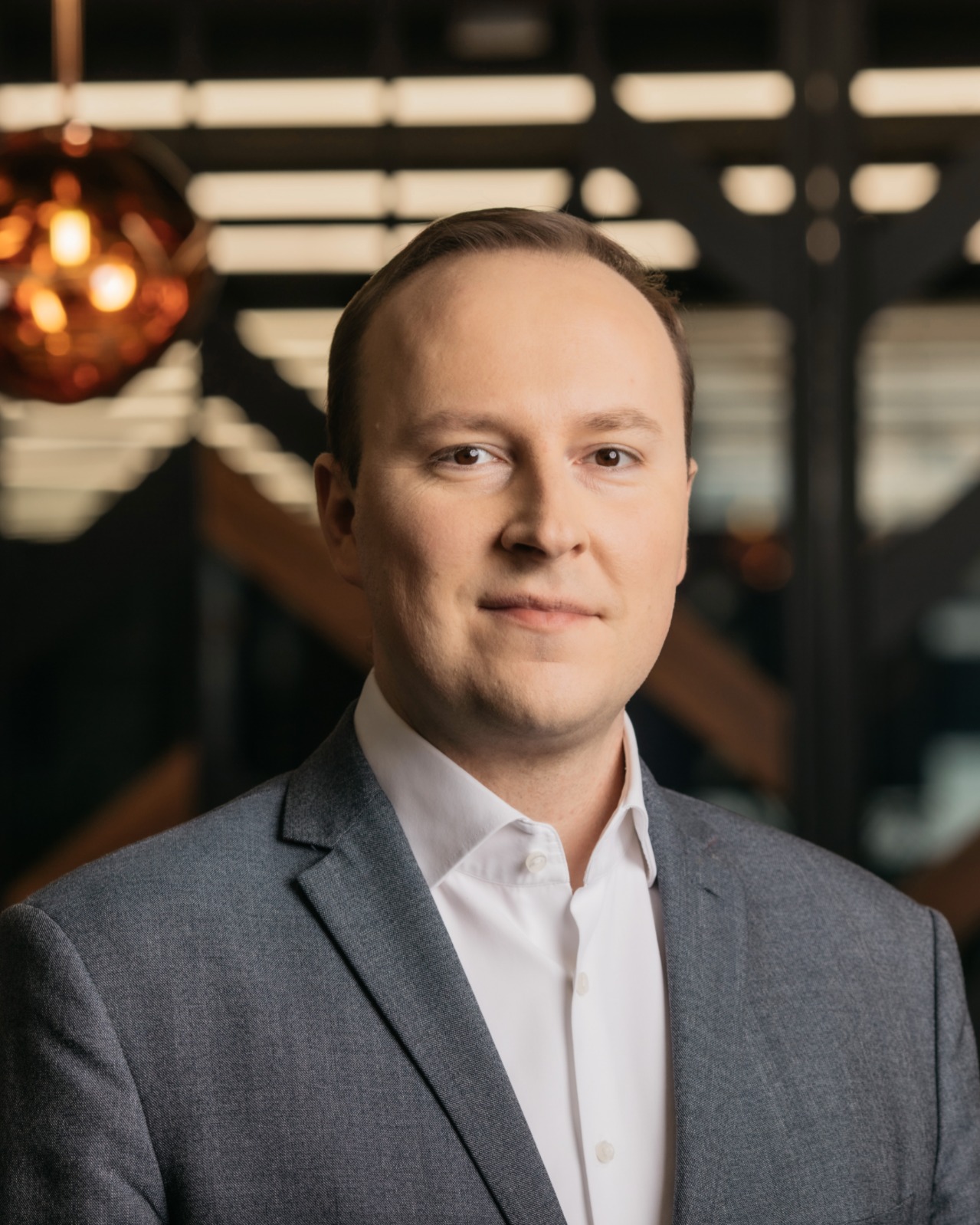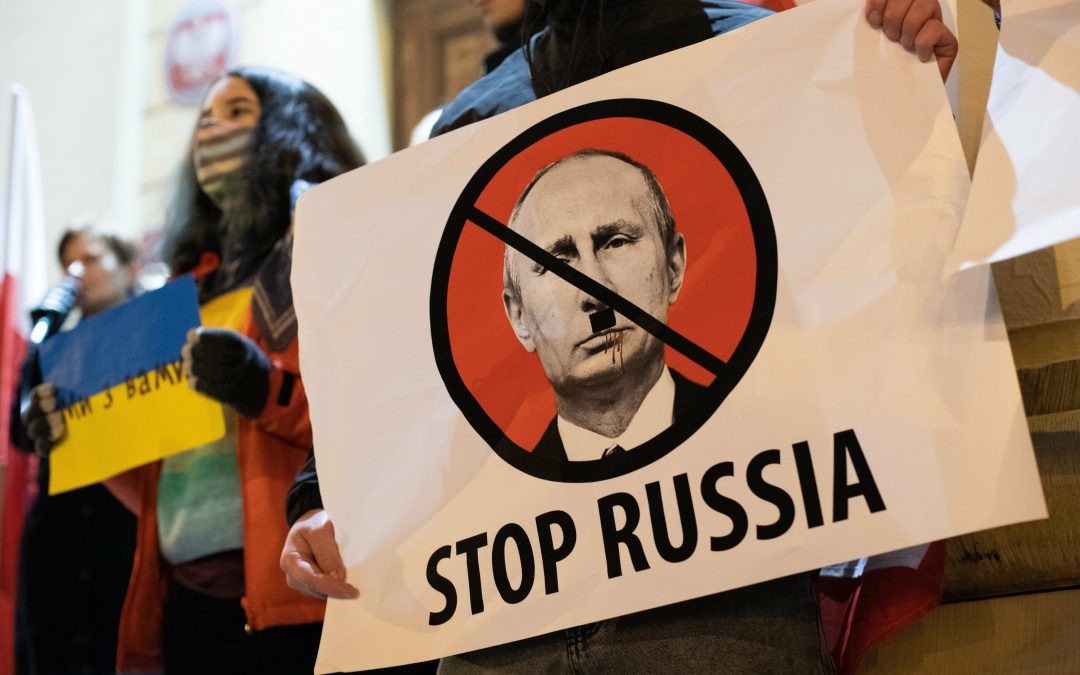By Marcin Makowski
The internet was recently flooded with memes about the difference between explaining Russian imperialism to people in the West – which is likened to teaching a young child – and to those in the East, who are already advanced students of the subject. As with every good joke, at its core there is a large grain of truth.
Could not help myself (meme stolen from FB): pic.twitter.com/aZLkapgABO
— Elo-Mall Toomet (@EloMall) April 10, 2022
There is one image, recurring like a mantra in Polish collective memory after the Second World War, that is hard for the West to understand. My grandmother shared it with me, although instinctively I found myself resisting the idea.
“When the war ended, we were more afraid of the Russian ‘liberators’ than the Germans,” I was told by a woman who in five years of German occupation had lost her home and part of her family.
Why was there more fear of people who, though hostile, did not want to turn Poland into a quasi-state of forced workers than of the architects of Auschwitz? To what extent could the aggressor be compared, and, even in a subjective hierarchy of fear, be placed lower than a core member of the Allies fighting against Hitler?
This question cannot be answered, and ultimately the reasons for Poland’s profound mistrust of Russia cannot be comprehended, without at least briefly delving deep into our history and trauma. This is the key to understanding what Russian imperialism was in practice, and how it seemed from distant Paris or Rome.
While the “civilised world” was fawning over Fabergé eggs and entranced by the court of Tsars Alexander III and Nicholas II, many of the spoils plundered from the partitions of Poland were under the protectorate of Moscow.
And Russia, as it was and remains given to do, was gradually limiting civil liberties and bloodily quelling independence revolts, before finally reducing the occupied territory to the contemptuous name of Vistula Land. All so that the word “Rzeczpospolita” – the name of the Polish republic – would not have to pass the lips of the governor dispatched from the Kremlin.
Poland returned to the map of Europe following the end of the First World War after 123 long years. Yet in 1920, less than two years later, it already had to defend itself and the continent from the Bolshevik offensive that might have ended only in Berlin. As in Ukraine today, the battles largely took place with the verbal – but not military – support of the West, while the Soviet invasion was accompanied by rape, destruction and devastation.
This week marks the centenary of the Battle of Warsaw, at which Poland inflicted a decisive defeat on the Soviet Red Army and changed the course of European history.
Norman Davies explains the battle's causes, course and consequences https://t.co/NGUvgxOkKG
— Notes from Poland 🇵🇱 (@notesfrompoland) August 12, 2020
History was repeated on 17 September 1939, when, two weeks after the aggression of Nazi Germany from the west, from the east the Red Army invaded Poland. They did so without declaring war and with the proclaimed aim of protecting Ukrainian and Belarussian “brothers” in eastern Poland – remarkably similar to Putin’s invasion of Ukraine.
In practice, however, the Soviet Union was to be, until the outbreak of the Great Patriotic War – as the Russians call their post-1941 operations – Hitler’s formal ally.
Throughout this time, Stalin ordered the murder of tens of thousands of Polish officers and intelligentsia, and even today full responsibility for these crimes has not been taken. Hands tied, a shot to the back of the head, and mass shallow graves. The recent images from Bucha spring to mind.
The full scale of deportations, imprisonment, rapes and murders is impossible to gauge, and the behaviour of the Russian soldiers of whom the Polish civilian population were so petrified was similarly incalculable.
How Russia thinks, how it plans its operations and what it is capable of are also remembered by our grandparents from the Warsaw Uprising. When the Red Army was nearing the Polish capital, it transmitted radio messages making calls for fomenting the revolt against the Germans.
Yet after the uprising began, it stood idly by, weapons on the ground, and watched as Hitler reduced one of Europe’s biggest cities to rubble. All to make it easier to absorb the weakened and wounded country into the Soviet sphere of influence on the other side of the Iron Curtain.
I will spare you any further historical analogies and Polish experience with Russians, but it is important to remember how fresh these wounds are and where the lack of trust in – as Daniel Fried, a former US ambassador to Poland, put it to me – the “unsuccessful experiment with Russian democracy” comes from.
The Russian army finally left Polish territory in 1993, having previously retained numerous military garrisons there in the form of closed towns. I grew up next to one of them, at Kluczewo in northwestern Poland. As a teenager, I wandered around the bunkers in which a few years earlier MiGs had been stationed and nuclear weapons stored.
In the Warsaw Pact defence doctrine, the regions of western and central Poland were to be a nuclear wasteland and firing range for the main battles with NATO. That was the fate envisaged for us.
When the late president Lech Kaczyński took part in a rally of support for the Georgians, after Russia had attacked their country in 2008, bombarding places including the city of Gori, his now-famous words did not come from nowhere.
“We know very well that today it is Georgia, tomorrow it will be Ukraine, the day after tomorrow the Baltic States, and perhaps the next one in line will be my country, Poland,” warned Kaczyński, who in a tragic and symbolic turn of events died in the crash of a plane flying to the graves of the officers murdered at Katyn by the Soviets in 1940.
"We know perfectly well that while today is time for Georgia, tomorrow it may be Ukraine, then the Baltic States, and later, perhaps, Poland,” said Lech Kaczyński in 2008.
"The prescience of his warning remains unquestionable," writes @AdamWSJ https://t.co/o1gdMi1F8x
— Notes from Poland 🇵🇱 (@notesfrompoland) February 12, 2022
Poles and the countries of Central and Eastern Europe do not need to have Russian imperialism explained to them, as they experienced it first-hand. They are not enticed by the promise of equality ensconced in communism, because they saw the poverty and dependence on Moscow that went hand in hand with it. Something that for French existentialists had the lure of intellectual revolution for us meant ration cards for meat and queues for oranges full of seeds imported from Cuba.
Russia does not change – its philosophy was, is, and will be imperialism, meaning colonisation of the buffer zones meant to assure Moscow’s security. Unfortunately, this is made possible by a combination of many factors: a dependence on the authorities’ propaganda, scant regard for human life and civilian victims, and a lack of consequences for its actions.
The war in Ukraine did not appear from nowhere. It also happened because, while Poland and the Baltic States were warning of the consequences of the capture of South Ossetia and Abkhazia, of Crimea, Luhansk and the Donbas, the rest of the world was organising the Winter Olympics and the football World Cup in Russia, while building gas pipelines that were called “business venture”. Today we can clearly see that they have served and are serving as a weapon of energy blackmail.
Perhaps one needs to experience what the “Russky Mir” is capable of to heal the infantile disorder of naivety towards Vladimir Putin, who hardly concealed the fact that his objective was to fix the greatest tragedy in the history of his country – the fall of the Soviet Union.
If the current war ends in an attempt at “normalisation” – a return to the Russian market and easing of sanctions in exchange for the forced neutrality of Ukraine – this will mean we have learned nothing.
The next lesson could be bombs aimed at Warsaw. And who can guarantee where Russia will stop. If thousands of victims of the war in Ukraine do not cure the West of idealising Russia, I do not know if we will have another chance to draw conclusions before World War III.
Translated by Ben Koschalka
Main image credit: Jakub Orzechowski / Agencja Wyborcza.pl

Marcin Makowski is a Head of News at Interia




















